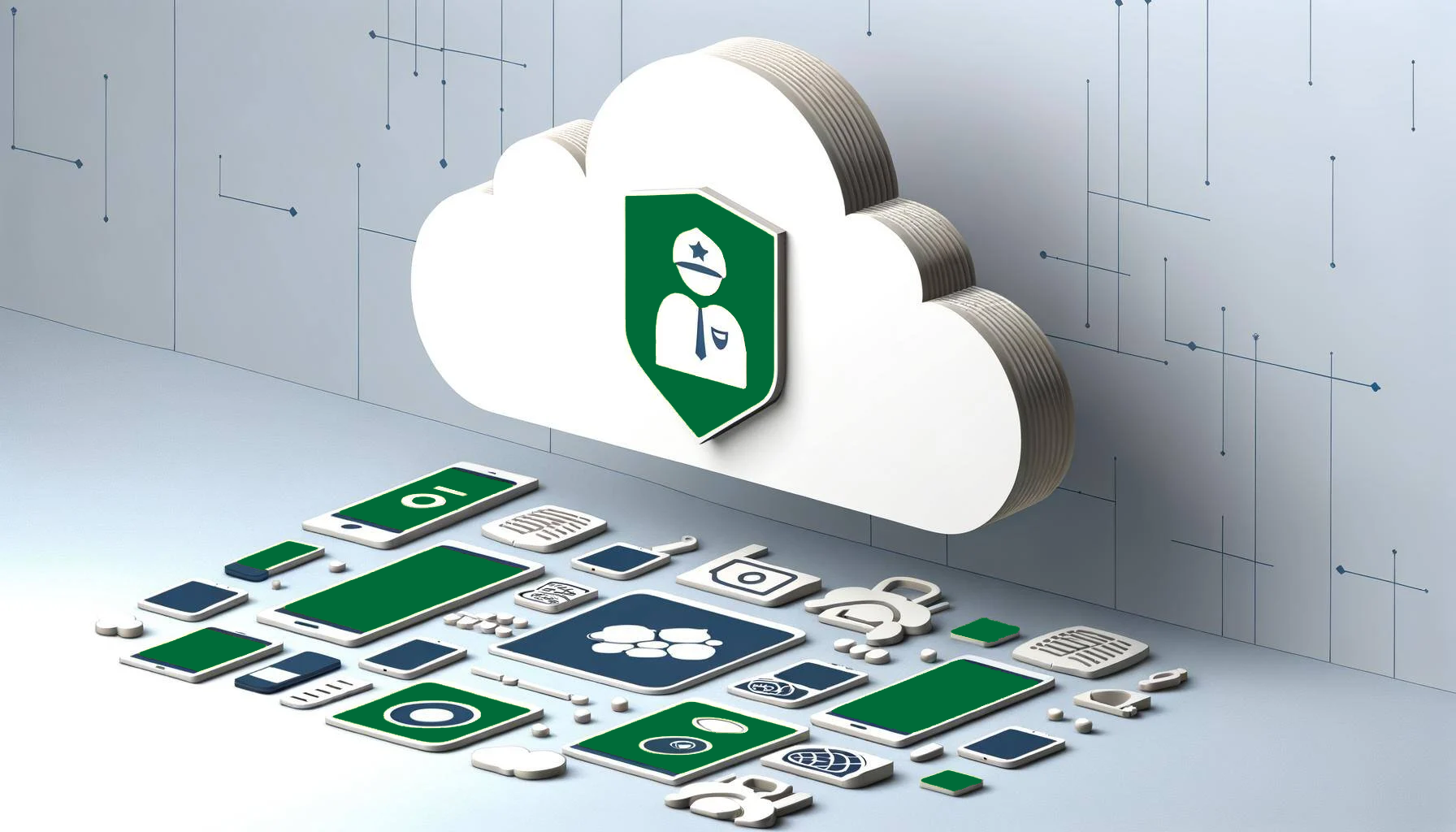

In the security industry, the efficiency and accuracy of mobile patrols are at the centre of daily tasks. These are an essential part of security services, where security guards regularly check certain areas or locations to ensure everything is in order and no incidents occur. Traditionally, these tasks have often been documented and managed manually, which is error-prone and inefficient. In the modern, digitalised world, cloud-based software offers a revolutionary solution to streamline these processes. Here are the 10 reasons why security companies should run their patrols with cloud-based software.
1. Real-time data and communication
Cloud-based software enables security companies to receive real-time data from their security forces in the field. Every patrol conducted, every area patrolled and every observation can be instantly uploaded to the cloud and viewed by the control centre. This not only improves the response time to incidents, but also communication between the teams and the control centre. Real-time communication ensures that security staff can respond immediately to instructions, which is particularly beneficial in critical situations. The immediate transmission of information means that security forces can respond more quickly to potential threats or incidents, significantly increasing the overall effectiveness of the security service.
2. Centralised data management
Managing data and reports can be a challenge, especially if they are available on different devices and in different formats. With a cloud-based solution, all data is stored centrally and can be accessed from anywhere. This makes it much easier to find information and create reports. A centralised system also means that all data is consistent and up-to-date, reducing errors and increasing efficiency. This is particularly useful for large security companies that need to monitor multiple sites. With a centralised database, all information can be stored and managed in one place, simplifying administration and increasing accuracy.
3. Security and data protection
Modern cloud-based software solutions offer advanced security measures to protect sensitive data. Encryption, access controls and regular backups ensure that data is protected against unauthorised access and loss. This is particularly important for security companies that often work with confidential information. Data security is crucial to gain customer trust and fulfil legal requirements. Cloud-based solutions often offer multiple layers of security, including physical security measures in the data centres and strict access controls to ensure that only authorised persons have access to the data.
4. Scalability and flexibility
Cloud-based software is extremely scalable and adaptable. Whether a company is growing or experiencing seasonal fluctuations, the software can be easily adapted to changing requirements. This allows security companies to respond flexibly to new challenges without having to invest in expensive hardware or additional IT infrastructure. This flexibility is particularly important in an industry that has to react quickly to changes. Whether it's the expansion of services or the short-term need for additional security staff, cloud-based solutions provide the adaptability needed to keep operations running smoothly and efficiently.
5. Cost efficiency
The use of cloud-based software can also lead to considerable cost savings. There is no need for high initial investment in hardware, and the ongoing maintenance costs are usually borne by the software supplier. In addition, security companies can reduce personnel and operating costs by automating and optimising their processes. By using cloud services, companies can also benefit from subscription models that allow them to pay only for the services they actually use. This reduces overall costs and makes budget planning easier and more predictable.
6. Improved reporting and analysis
Traditional methods of data processing and reporting are often time-consuming and error-prone. With cloud-based solutions, security companies can create detailed reports faster and more accurately. This software makes it possible to efficiently process large amounts of data and turn it into actionable insights. This allows security companies to recognise trends and patterns in their data, leading to a more proactive security strategy.
For example, frequent security incidents in certain areas can be identified and appropriate action taken to prevent future incidents. The ability to analyse historical data also helps with the planning and optimisation of security routes and operations. In addition, cloud-based reporting facilitates communication with customers. Regular, detailed reports can be generated automatically and sent directly to customers. This promotes transparency and strengthens customer confidence in the security company's services.
7. Simple planning and scheduling options
Cloud-based software enables more efficient planning and scheduling of security personnel. Traditional methods are often time-consuming, while cloud-based solutions enable dynamic deployment planning based on real-time data. This allows a rapid response to unforeseen events and facilitates coordination and communication through centrally managed deployment plans. In addition, the analysis of past operations enables the optimisation of future plans. Overall, these systems increase efficiency and flexibility, which leads to better resource utilisation and higher service quality.
8. Lone worker protection
Another key advantage of cloud-based software is the improved protection of lone workers. Security guards are often working alone, which poses particular security risks. Cloud-based systems can be equipped with functions that monitor the location of employees in real time, send automatic emergency messages and enable regular safety check-ins. This significantly increases employee safety and ensures that help can be provided immediately in the event of an emergency. These systems can also trigger alarms if a security guard does not check in or is inactive for a certain period of time, further minimising the risk to lone workers.
9. Improved customer satisfaction
By using cloud-based software, security companies can offer their customers a better service. Detailed reports and better-prepared data can be made available to customers, which strengthens trust and increases transparency. They can access relevant data and reports at any time via customer portals. This not only increases customer satisfaction, but can also help to promote long-term business relationships and attract new customers.
10. Sustainability and environmental friendliness
Cloud-based software solutions can also help to reduce a company's environmental footprint. By eliminating physical servers, using efficient, centralised data centres and moving away from printed paper-based lists and documents, companies can reduce their energy consumption and CO2 emissions. This is not only good for the environment, but can also improve the company's image and contribute to a positive perception among customers.
Benefits of using cloud-based software for mobile patrols
The digitisation of the security industry is inevitable and cloud-based software offers a variety of benefits that make patrols more efficient, safer and more cost-effective. By utilising such technologies, security companies can not only improve their service quality but also gain a competitive advantage. It's time to leave traditional methods behind and embrace the possibilities of modern technology. In particular, lone worker protection highlights the need for and benefits of cloud-based solutions to maximise security and efficiency in security services. In addition, centralised data management, real-time communication and automated processes boost the productivity and satisfaction of both employees and customers. Investing in cloud-based software is therefore a strategic decision that can have far-reaching positive effects on all aspects of a security company.
Subscribe



